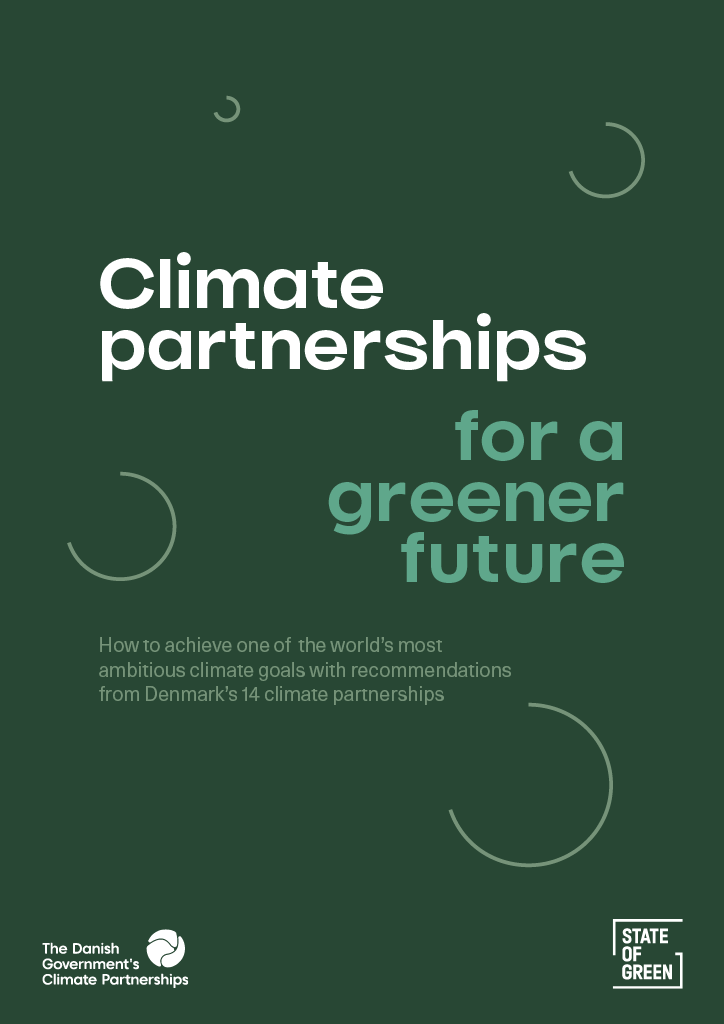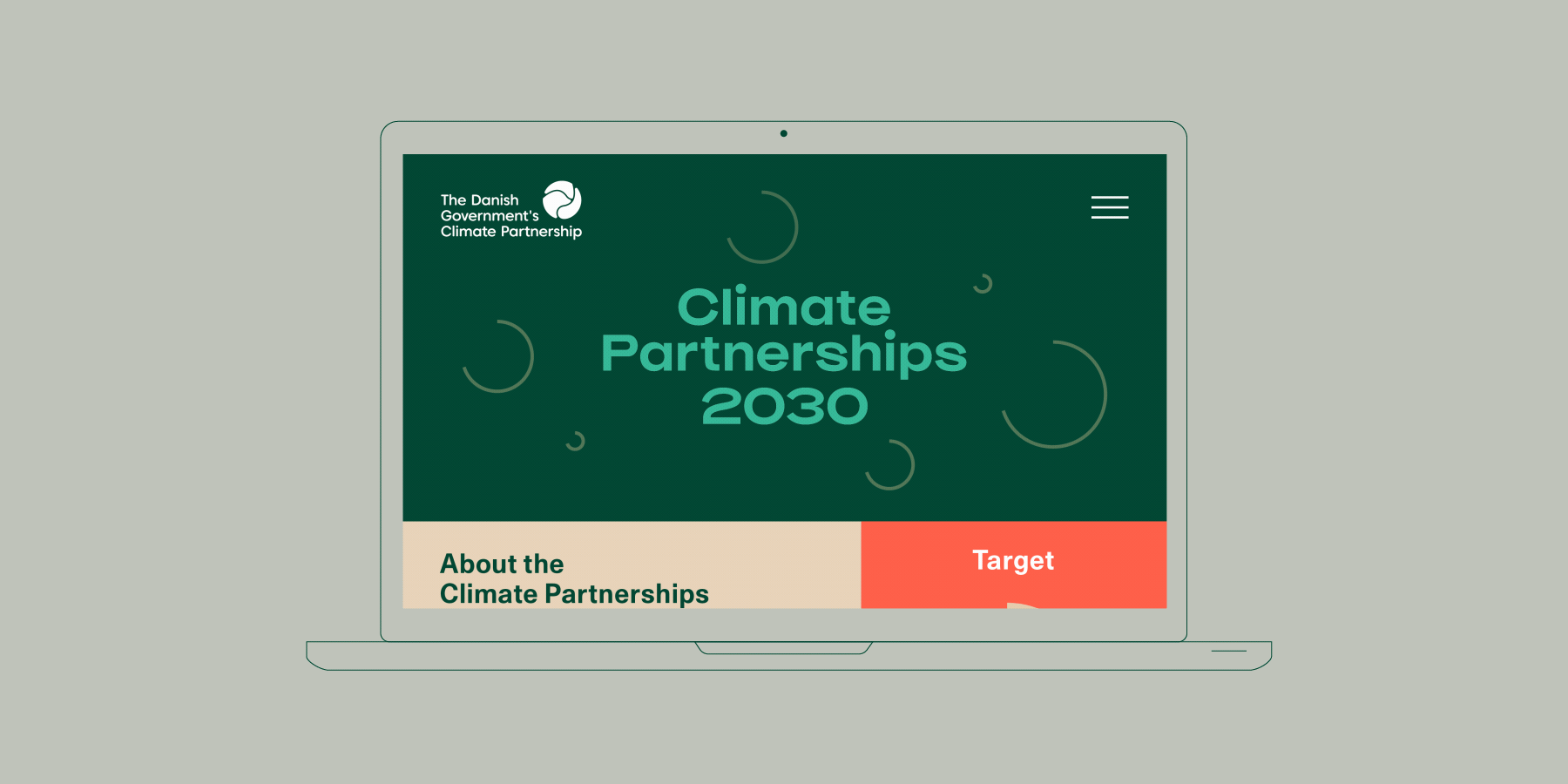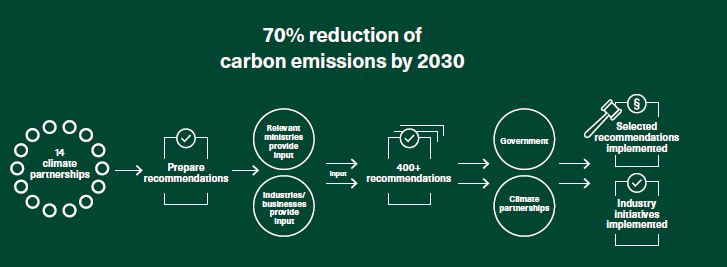Climatepartnerships2030.com
Climatepartnerships2030.com is the official website for the Danish climate partnerships. Learn more.
Publication
Climate partnerships
Bioenergy
Biogas
+18

Reducing greenhouse gas emissions by 70 per cent by 2030. This is the ambitious climate goal set by the Danish government. But how do we get there? Building on the Danish tradition for public-private partnerships and recognising the private sector as a central actor, the Danish government has formed 14 climate partnerships. Each representing the different sectors in the Danish economy.
The 14 partnerships had been tasked with presenting a proposal on how their individual sector could contribute to CO2e reductions in a just way, supporting Danish competitiveness, exports, jobs, welfare and prosperity. This resulted in more than 400 recommendations.
Climatepartnerships2030.com is the official website for the Danish climate partnerships. Learn more.

In the publication, you will learn more about the structure of the climate partnerships. Discover the actors behind them, their visions, and most importantly, their recommendations for government action. While every country is unique, you may find their policy recommendations or suggested actions relevant when mapping out a path to tackle your own country or industry-specific challenges.
In the publication, you can – among other things – learn more about the model that made the 14 climate partnerships possible

